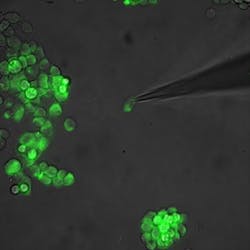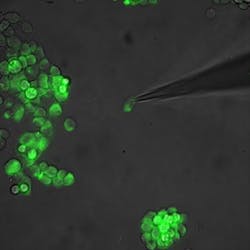LZH working to develop optogenetics innovations network
Laser Zentrum Hannover (LZH; Germany) is striving to set up a nationwide network on optogenetics that will pool the competencies of relevant research fields to unlock the potential of light-controllable biomolecules in combination with up-to-date light technology. Optogenetics—which pairs optics and genetic engineering—offers a promising approach for new treatment methods for neurological diseases, among others.
Light pulses can trigger reactions in biological tissue, and thus control a number of different processes. Muscle contractions, nerve impulses, or certain intermediate metabolic products can be induced. These mechanisms are the basis for many new applications in biomedical sciences, robotics, and biotechnology. First studies have already confirmed promising approaches--for example, for improving neurological implants.
To exploit the numerous possibilities of optogenetics, close cooperation between diverse branches of studies is necessary, from molecular biology to laser physics. Through an intensive dialogue between research, economy, the public, and politics, fundamental knowledge from the laboratory could be more quickly transferred to innovative processes and products the benefit of the society. Against this background, LZH has initiated what they're calling the Innovation Forum Optogenetics – Technologies and Potential network.
LZH's optogenetics network initiative was one of 21 project sketches from the first application round of the "Innovation forums for medium-sized businesses" program selected to submit a project proposal to the Federal Ministry of Education and Research (BMBF; Bonn, Germany).

